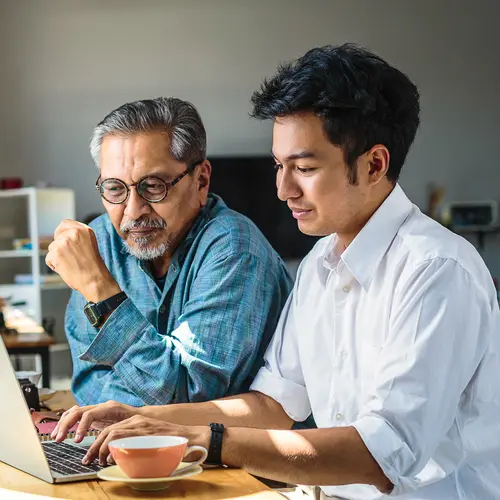Pneumonia is a type of lung infection. It can infect one or both of the lungs. It happens when air sacs in the lungs fill up with bacteria or pus. Different types of bacteria can cause pneumonia. The illness can manifest in a wide range of severities and appears differently depending on the person and situation.
Factors like your age, overall health, and the cause of your infection greatly affect how your body will handle it and recover. People with weakened immune systems like older people and infants often experience a more extreme version of pneumonia.
Your immune system may naturally weaken over time. However, this just means that you have to be extra careful in treating your pneumonia if you are an older person, as the risk for developing severe pneumonia gets higher the older you get. If untreated, pneumonia can have serious and lasting effects in older people.
What Causes Older People to Get Pneumonia?
Usually, people get pneumonia from someone close to them. For this reason, pneumonia in nursing homes can be very dangerous. Not only do people in nursing homes live close together, but they are also likely to have underlying conditions and be physically inactive.
Older people can also get pneumonia from hospitals or extended stays in medical facilities. Both of these environments are full of germs and strains of pneumonia that may be more difficult to treat with antibiotics.
Usually, when elderly people go to the hospital, the organisms that cause pneumonia are Streptococcus pneumoniae and Mycoplasma pneumoniae. Streptococcus pneumoniae usually happens on its own after you have a cold or the flu. Mycoplasma pneumoniae, or “walking pneumonia,” is a milder strain of pneumonia that doesn't usually require bed rest.
Pneumonia can be caused by fungi. This is a type of pneumonia that older people should be particularly careful of. It primarily affects people with chronic health issues. It comes from inhaling certain kinds of fungi in the soil or bird droppings.
Older people should be aware that viruses, such as the one that causes COVID-19, can also cause pneumonia. Other viruses that cause colds and the flu are also in this category. In most cases, viral pneumonia is mild, but it can become serious.
Symptoms of Pneumonia
Often, the symptoms of pneumonia are similar to a cold. The signs can include:
- Chest pain
- Chills
- Cough with or without mucus
- Fever
- Low oxygen levels in the blood
- Shortness of breath
- Headache
- Muscle pain
- Fatigue
- Nausea
- Vomiting
- Diarrhea
Risks of Pneumonia
Being elderly means the risks of pneumonia are heightened, and terminal pneumonia is a strong possibility. Some of the most significant risks to watch out for are:
- Bacteria in the blood. The pneumonia bacteria in your lungs can spread to your blood and then onward to different parts of your body.
- Ongoing breathing issues. If you have severe pneumonia in combination with chronic lung issues, your breathing can be greatly affected by pneumonia. You may even need to use a breathing machine while you heal.
- Fluid buildup. Pneumonia can cause fluid to build up in the chest cavity. This fluid may become infected. If this happens, you will need to have the fluid drained or removed through surgery.
- Lung abscesses. An abscess happens when pus grows in the lung cavity. This is usually treated with antibiotics. You might need to have surgery to remove it, or it may have to be drained with a long needle.
If you are an older person, some preventative things you can do to decrease the risks of your pneumonia advancing are:
- Eating healthy foods
- Drinking lots of fluids
- Limiting your alcohol intake
- Not smoking cigarettes
- Sleeping enough
- Exercising regularly
Treatment for Pneumonia
If you are elderly, it is best to treat your pneumonia as early as possible. Your doctor will likely prescribe you antibiotics or over-the-counter medicines, or they may even suggest a hospital visit depending on how sick you are.
Some of these medicines can be:
- Antibiotics for bacterial pneumonia
- Antiviral medication for viral pneumonia
- Antifungal medication for fungal pneumonia
- Over-the-counter options to reduce your fever or to ease breathing
If your pneumonia is advanced enough to go to the hospital, the effective forms of treatment they might give you are:
- Antibiotics
- An IV with fluids
- Oxygen therapy
- Ventilator
In serious cases, you might need to get surgery or have a procedure done to remove severely damaged parts of your lungs.
When to See a Doctor
If you are over 65, you should see a doctor if you have difficulty breathing, a long-lasting fever, or a cough. This is especially true if you have heart issues, chronic lung problems, or other sensitive underlying conditions.

